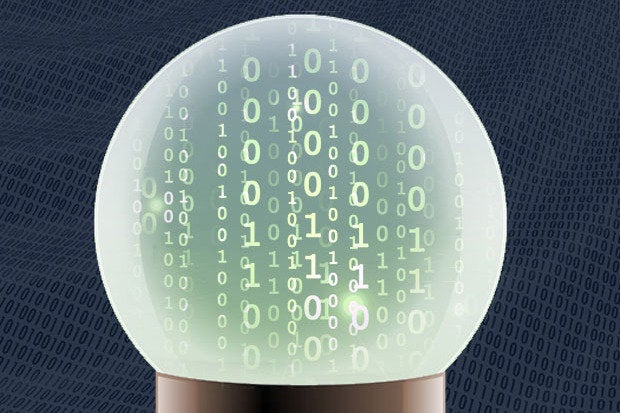computerworld.com

Within 10
years, the U.S. will see the first robotic pharmacist. Driverless cars will
equal 10% of all cars on the road, and the first implantable mobile phone will
be available commercially.
These
predictions, and many others, were included in a World Economic Forum report,
released this month. The "Technological Tipping Points Survey" is
based on responses from 800 IT executives and other experts.
A tipping
point is the moment when specific technological shifts go mainstream. In 10
years, many technologies will be widely used that today are in pilot or are
still new to the market.
The
Internet of Things will have a major role. Over the next decade there will be
one trillion sensors allowing all types of devices to connect to the Internet.
Worldwide,
the report estimates, 50 billion devices will be connected to the Internet by
2020. To put that figure in perspective, the report points out, the Milky Way
-- the earth's galaxy -- contains about 200 billion suns.
The
ubiquitous deployment of sensors, via the Internet of Things, will deliver many
benefits, including increases in efficiency and productivity, and improved
quality of life. But its negative impacts include job losses, particularly for
unskilled labor as well as more complexity and loss of control.
Robotics,
too, will be a mixed bag. It will return some manufacturing back to the U.S.,
as offshore workers are replaced with onshore robots. But robotics -- including
the first robotic pharmacist -- will result in job losses as well.
There's
concern that "we are facing a permanent reduction in the need for human
labor," said the report.
That may
still be an outlier view. Efficiency and productivity gains have historically
increased employment. But a shift may be underway.
"Science
fiction has long imagined the future where people no longer have to work and
could spend their time on more noble pursuits," the report said.
"Could it be that society is reaching that inflection point in history?"
That
question doesn't have a clear answer. The Industrial Revolution destroyed some
jobs but created many more, the report points out. "It can be challenging
to predict what kinds of jobs will be created, and almost impossible to measure
them," the report notes.
Other
predictions included:
* Driverless
cars will make up one in 10 of the vehicles on the road, and this will improve
safety, reduce stress, free up time and give older and disabled people more
transportation options. But driverless vehicles may also result in job losses,
particularly in the taxi and trucking industries.
* One in 10
people will be wearing connected clothing in 10 years. Implantable technologies
will also be more common, and may be as sophisticated as smartphones. These
technologies may help people self-manage healthcare as well as lead to a
decrease in missing children. Potential negatives include loss of privacy and
surveillance issues.
* The
forecasters were bullish on vision technologies over the next decade. This is
tech similar to Google glass that enhances, augments and
provides"immersive reality." Eye tracking technologies, as well, will
be used as a mean of interaction.
* Unlimited
free storage that's supported by advertising is expected by 2018.
No comments:
Post a Comment